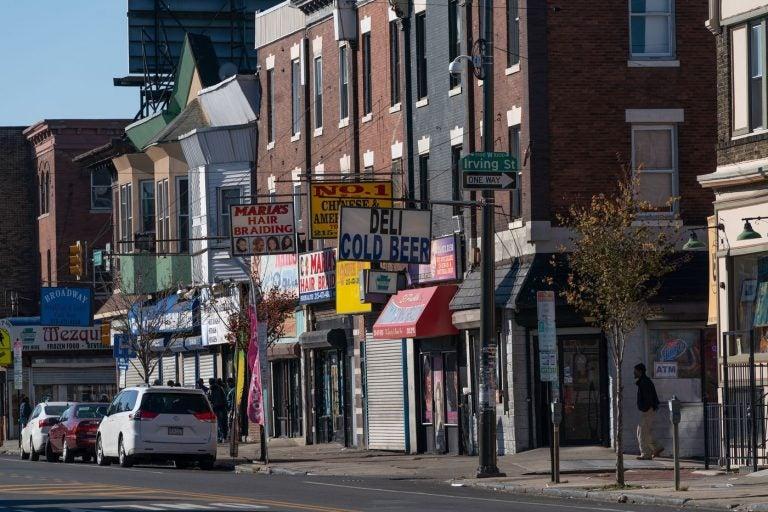Philadelphia Businesses Challenge Proposed Nighttime Curfew Amid Economic Concerns
Economic Risks Highlighted by Philadelphia’s Business Community
Philadelphia’s business owners are raising alarms over a recently introduced curfew proposal designed to curb late-night disturbances. Many entrepreneurs warn that imposing strict operating hour limits could jeopardize the city’s fragile economic rebound, particularly impacting sectors reliant on evening and nighttime trade such as dining, nightlife, and entertainment. Concerns about potential layoffs and permanent closures are mounting, prompting business groups and chambers of commerce to advocate for reconsideration or modification of the bill.
Experts in economics emphasize that this curfew initiative arrives at a critical juncture, as many establishments are still recovering from pandemic-related losses. Recent surveys underscore the gravity of the situation, revealing:
- Revenue decline: Approximately 70% of businesses anticipate a 25-40% drop in evening sales.
- Employment threats: Over half foresee workforce reductions or hiring freezes.
- Customer presence: A projected 30% decrease in foot traffic during curfew hours.
| Industry | Estimated Revenue Decline | Projected Job Cuts |
|---|---|---|
| Hospitality | 35% | 15% reduction |
| Retail | 20% | 10% reduction |
| Entertainment | 40% | 20% reduction |
These figures have intensified calls for a nuanced strategy that safeguards public safety without undermining Philadelphia’s economic momentum. Business advocates continue to press for open communication channels with city leaders to develop policies that balance health priorities with financial resilience.
Unified Business Voices Demand Partnership with City Officials
In response to the curfew proposal, Philadelphia’s diverse business sectors are banding together, urging municipal authorities to engage in cooperative dialogue. Industry leaders stress that collaborative policymaking is essential to mitigate economic fallout while addressing safety concerns. They argue that a one-size-fits-all curfew could stifle recovery efforts and propose alternative measures that reflect the city’s varied neighborhood dynamics.
Key proposals from business representatives include:
- Adoption of adaptable curfew schedules tailored to specific districts.
- Investment in targeted security enhancements rather than broad restrictions.
- Inclusion of business owners in legislative discussions to ensure practical solutions.
- Financial assistance programs to help offset losses from regulatory changes.
| Sector | Main Concern | Requested Remedy |
|---|---|---|
| Restaurants & Bars | Revenue loss during restricted hours | Extended operating hours beyond curfew |
| Retail | Decline in customer visits | Increased security patrols |
| Entertainment | Event cancellations | Special permits for weekend activities |
Evaluating the Curfew’s Impact on Philadelphia’s Night Economy
The proposed curfew has sparked significant debate over its potential to disrupt Philadelphia’s vibrant nightlife economy. Business owners in hospitality and entertainment sectors warn that limiting late-night operations could slash revenues and threaten thousands of jobs. The late-evening crowd constitutes a vital customer base, and curtailing access during these hours risks undermining the financial health of many establishments.
Economic analysts concur that the curfew could dampen the city’s cultural and economic vitality. The hospitality industry, in particular, often generates up to 40% of its weekly income during after-hours. The table below illustrates estimated revenue losses correlated with different curfew start times:
| Curfew Start Time | Estimated Revenue Loss | Likely Employment Impact |
|---|---|---|
| 9:00 PM | 35% | Severe |
| 10:00 PM | 25% | Moderate |
| 11:00 PM | 15% | Minimal |
- Smaller businesses face heightened risk of closure due to diminished patronage.
- Employment stability is threatened, especially for part-time and hourly workers.
- Tourism appeal may decline as nightlife options become limited.
Strategies for Harmonizing Public Safety with Economic Growth
Achieving a sustainable balance between safeguarding public safety and supporting local businesses demands innovative, data-driven approaches and stakeholder collaboration. One promising strategy involves implementing flexible curfew schedules that adjust according to neighborhood-specific crime statistics and seasonal trends. This method empowers law enforcement to focus resources effectively while allowing businesses to operate during their most profitable hours. Complementary measures such as enhanced street lighting and increased surveillance in commercial districts can deter crime without imposing blanket restrictions that stifle economic activity.
Further initiatives that could bolster both security and economic interests include:
- Expanded late-night public transit options to facilitate safe travel for workers and customers.
- Financial incentives and grants for businesses investing in security infrastructure like cameras and trained personnel.
- Regular community forums fostering transparent dialogue among residents, business owners, and law enforcement to ensure policies reflect diverse perspectives.
| Initiative | Expected Benefit | Potential Challenges |
|---|---|---|
| Flexible Curfew Hours | Balances crime reduction with business needs | Requires comprehensive data analysis and monitoring |
| Security Grants | Enhances safety infrastructure in commercial areas | Limited funding and eligibility restrictions |
| Community Engagement Forums | Builds trust and collaborative problem-solving | Ensuring consistent participation and diverse representation |
Looking Ahead: Navigating the Future of Philadelphia’s Nightlife and Economy
As Philadelphia continues to grapple with the proposed curfew legislation, the business community remains steadfast in its opposition, emphasizing the potential economic repercussions and questioning the efficacy of such restrictions. City officials are under increasing pressure to devise a solution that upholds public safety without compromising the vitality of local commerce. The resolution of this issue will likely influence how urban centers nationwide balance nightlife regulation with economic sustainability amid ongoing public safety challenges.
Stay tuned for ongoing coverage and expert analysis as this important story develops.








